Day in the life Servicing Airport Security Systems
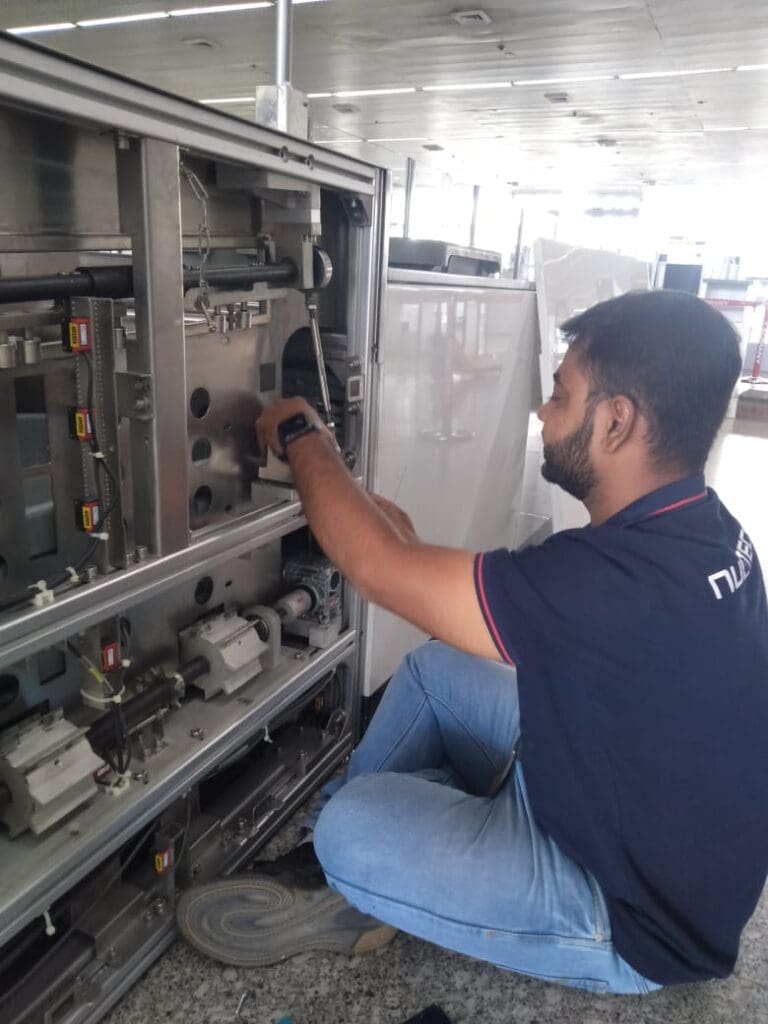

Dipankar Mondal servicing airport security systems
Ever wondered how the security systems in airports keep working 24/7 and who is responsible for servicing airport security systems? Meet Dipankar Mondal a Service Engineer working on electronic security systems for Nuctech Company Limited.
Background and path to Servicing Airport Security Systems
Were you interested in engineering as a child?
Yes. I was always curious about gadgets like TVs, radios, refrigerators etc. I wanted to know what was inside all of them.
What led you to be most interested in Electronic Engineering?
I first became interested when my father purchased his first black and white mobile phone. I was always wondering how it worked. At that time the internet was not available, so I started reading newspaper articles about phones and other things. My curiosity about electronic equipment started from there, I think.
Was there a particular person who suggested electronics?
No. None of my parents or family members are from a technical background. They were not knowledgeable about those things. It is my own interest which has led me here.
Who has been an inspiration to you?
Our former President of India, Dr. A. P. J Abdul Kalam, the Missile man of India. He studied physics and aerospace engineering.
Typical day servicing airport security systems
What’s your typical day like?
Handing over two ATRS (Automatic Tray Retrieval Systems) machines as per the deadline asked for by the client.
A standard day is eight hours, but to be honest if there is any issue not sorted, then I stay until it is resolved.
How much of your day is spent on checking data and admin?
As a team lead, I have to follow up on a lot of things every day. For example:
Spare parts stock list
Pending PMs (preventative maintenance) list
Checking pending SLAs (service-level agreement)
How much travel do you do?
About 30% of my time is travel.
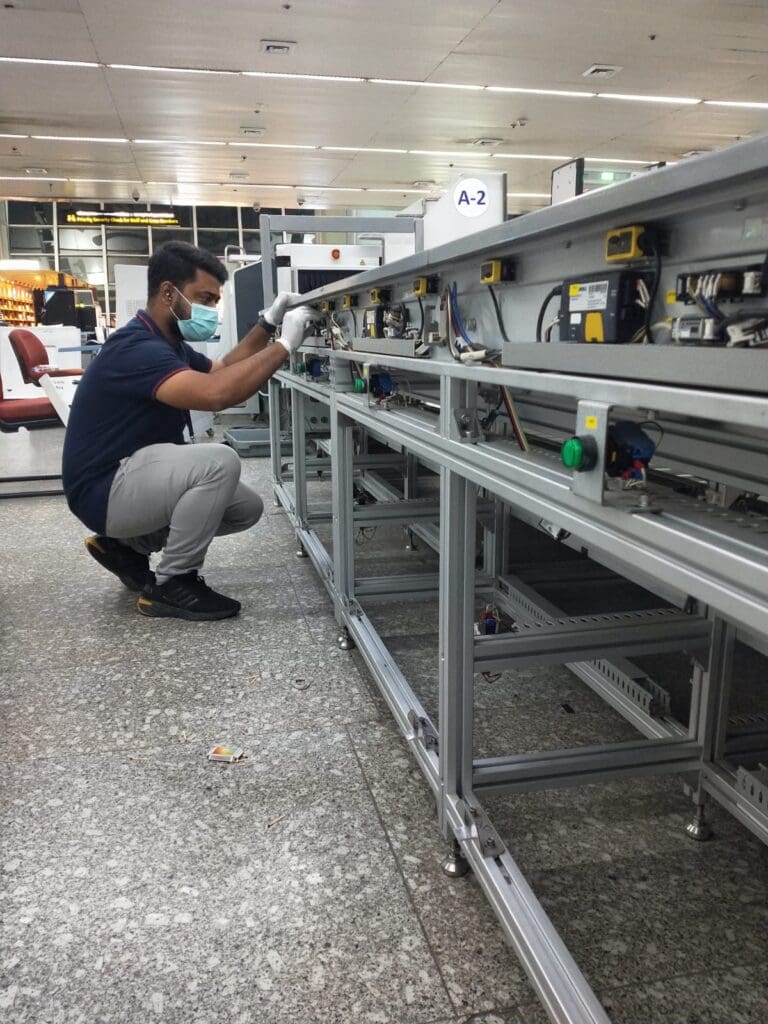

Types of security equipment serviced
Can you give examples of the types of equipment you work on?
Xray Baggage inspection system
Automatic tray retrieval system
Temperature detecting camera
Explosive Trace Detector
What is the most interesting/best designed piece of equipment you work on or have worked on?
Automatic Tray Retrieval System.
This equipment supplies trays automatically to the passengers at the airport. Passengers put their baggage on for scanning. After scanning, the passengers take their belongings again and the empty trays are returned to the front of the machine to be used by the next passengers.
What do you think is in the future for equipment for electronic security systems in airports?
I think it will be an ATRS system with a CT machine attached.
What difference do you think that would make?
At the moment, an ATRS is attached to dual view X-ray machines. That gives a 2D view that is a bottom view and a side view. Once we start using a CT machine, it will give a 3D view.
What would be the benefit?
As Security is the main purpose a 3D image is going to be much more effective to identify any unknown threat than a 2D image. It will save time too. Inspection times will be shorter and so this will increase the throughput of baggage per hour. It will also increase the efficiency of a screener.
Do you only install in airports?
Anywhere there are people with baggage!
I install equipment not only at airport but also in ports, flying clubs, industrial plants, hotels and offices.
Which machines give you the most problems?
An ETD machine gives the most problems as it is very sensitive. Its results can vary with the environment – humidity, dust, air pressure etc.
Key tools
If you could only have three tools with you, what would they be?
If I need to choose just three tools, then I would choose:
a multimeter
a ratchet set
an adjustable spanner.
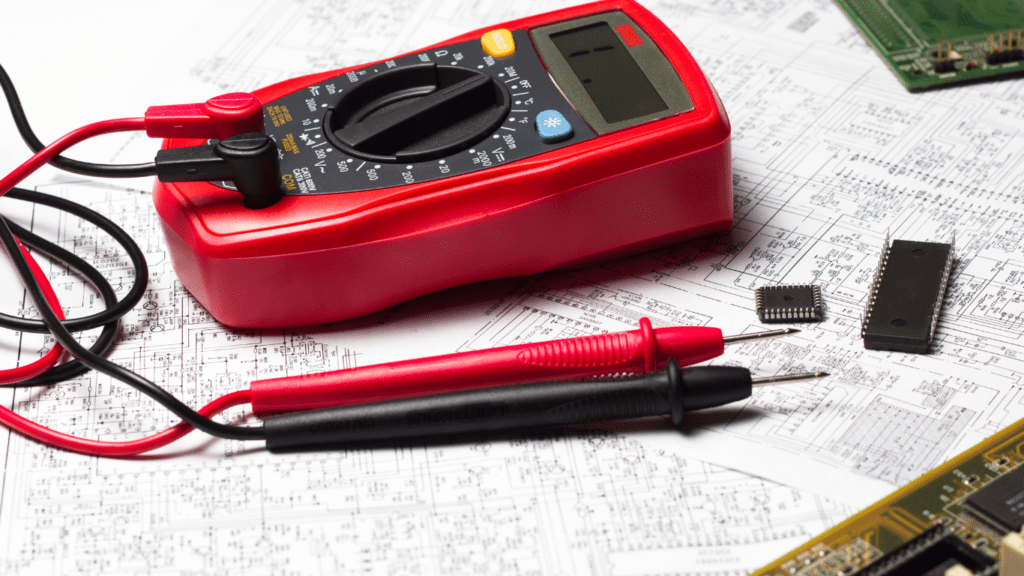

Most challenging part of the job servicing airport security systems
What do you find most challenging about the work (technical, customers, logistics)?
Troubleshooting is the main challenge of any technical issue. Once we know what the problem is, fixing or solving it is easy.
What has been your most difficult job so far?
Changing the conveyor belt of the XBIS (Xray Scanner Machine) when it is attached to the ATRS (Automatic Tray Retrieval System).
Have you ever arrived on site and found that it’s been much easier than you expected? For example, that you just needed to make a small adjustment or switch something on?
This has happened so many times.
Once I visited the Port Blair site (Veer Savarkar International Airport) because the input and output conveyor belts were not moving. When I got there, I checked the power connector cable from the main control board and found that it was disconnected. All I had to do was to connect that cable and system was ready for operation again. It took just five minutes to solve the issue.
This is one of many such examples.
Making a winner
What sort of person makes an excellent Service Engineer?
I think the most important attribute is someone who can learn from his/her past and develop what was missing.
How important is it to stay up to date with other products not just the ones you work on?
Things are changing rapidly, so staying uptodate is mandatory to be a good Service Engineer.
The more you know about different systems the more you will get good at troubleshooting.
How important is ongoing training?
Training provides an overview of a machine’s fundamentals. On the basis of that we work further and develop.
How key is it to have a mentor and a good team around you?
I think it is vital to have a good team and to have a good relationship with them. As a team leader I think you need to do two key things:
Understand the problems your engineers have in the field
Give them continuous mental and technical support
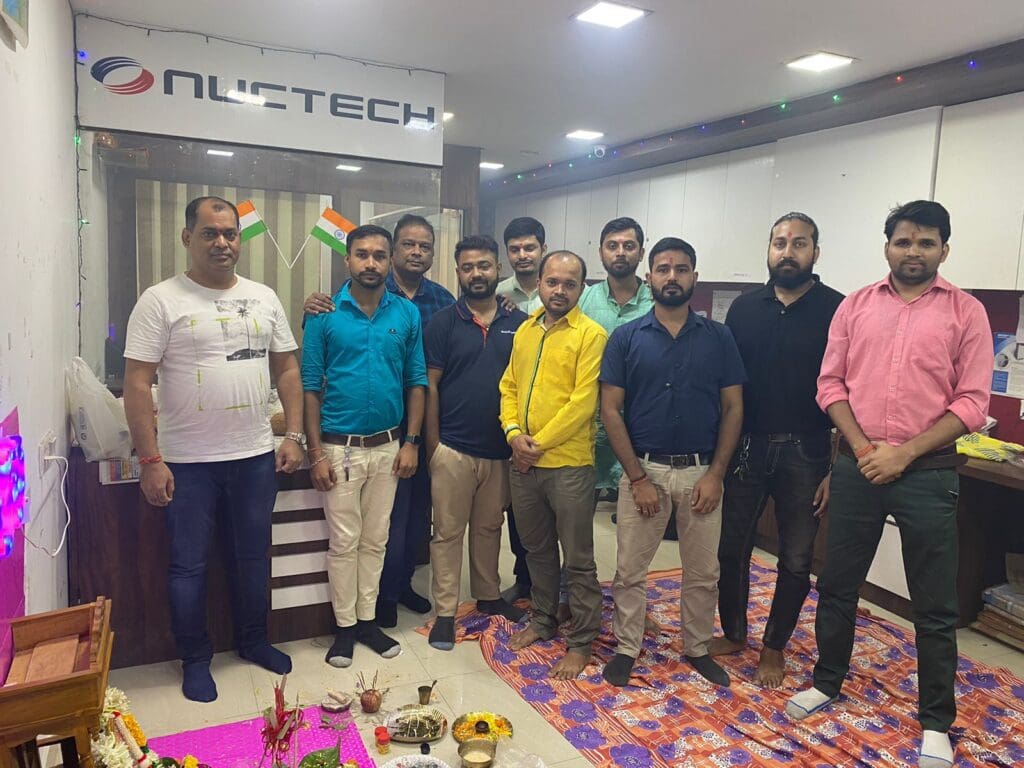

New people
What advice would you give to someone who has just started their first job in field service:
During their first month
Understand the fundamentals of all the equipment and machines you are working on.
During their first three months
Keep notes of all the issues you encounter and how you solved the problem. Then you will have your own personal reference guide for the future.
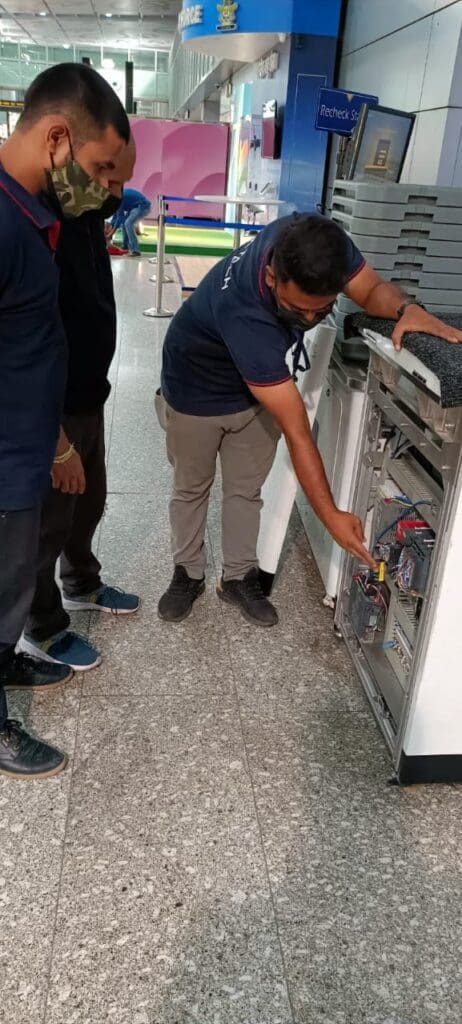

Apart from a strong technical background, what are the three most important skills to have?
The three most important skills are:
Good knowledge of Industrial Safety Standards
Strong communication skills
Leadership skills
Further reading
Successful Life as a Mechanical Engineer servicing Elevators and Escalators
Alec Hadley servicing medical equipment at work, building gaming computers for fun


Responses